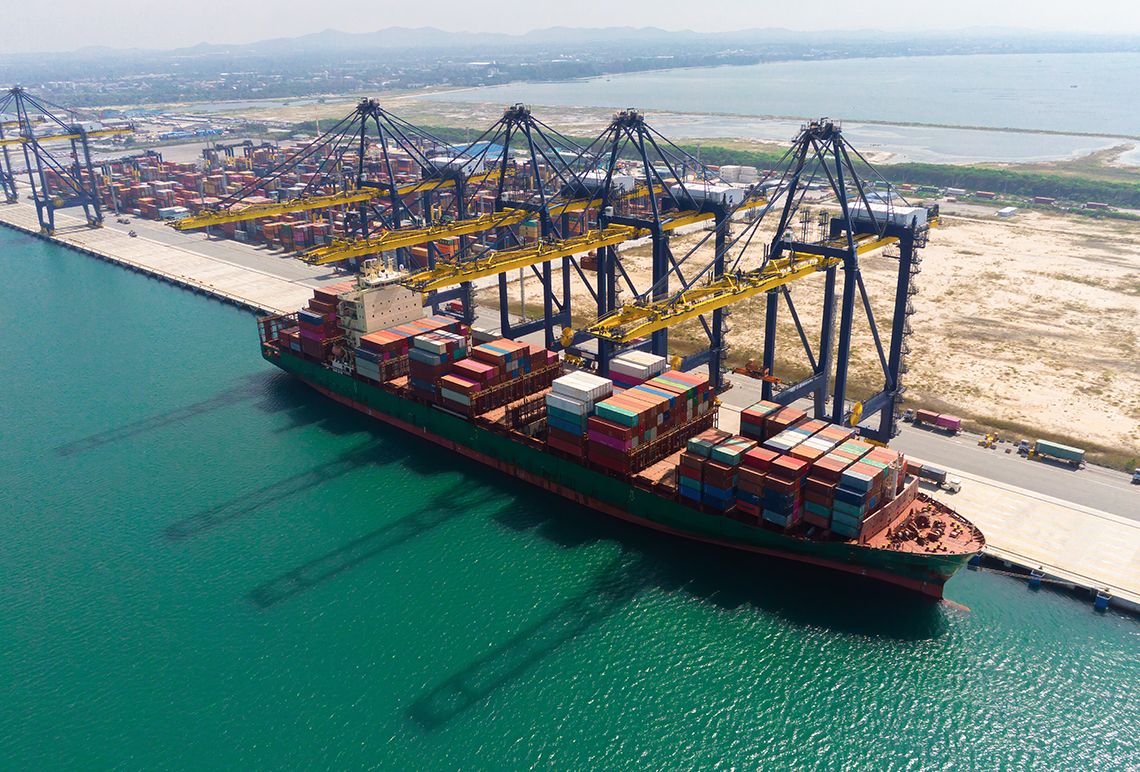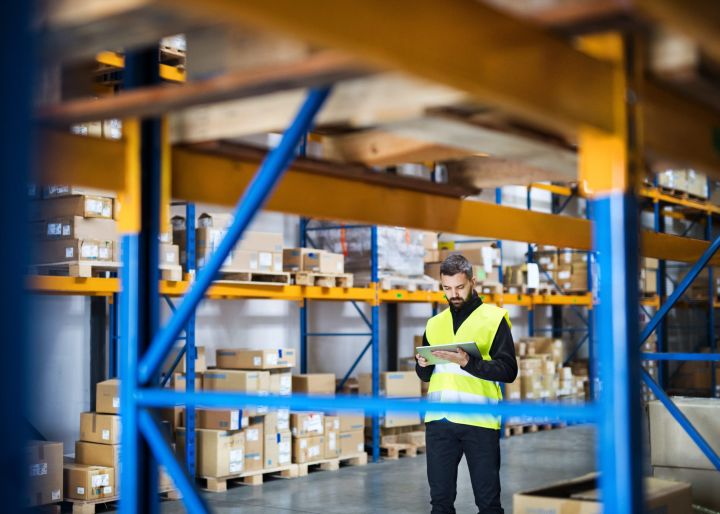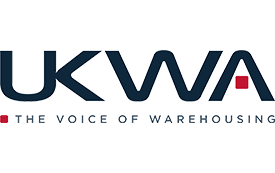
Julian Burnett , CEO
When the Ever Given container ship ran aground in the Suez Canal back in March 2021, it blocked a vital route for global trade for just six days. Those six days led to a cascade of issues in supply chains, hitting a world that still hadn’t fully recovered from the effects of the COVID-19 pandemic. It was a small but significant example of how easily events can cause huge disruption around the world.
Recent tensions in the Middle East, particularly with the Houthi attacks in the Red Sea, have rekindled fears about more serious disruption hitting global supply chains. The Red Sea is the quickest route by sea between Asia and Europe, carrying 15% of global maritime trade (over a billion tonnes of cargo). As vessels are re-routed, delays and cost increases become inevitable. Indeed, Hapag-Lloyd has already made the decision to route their ships around the Cape of Good Hope for safety.
We’ve also seen container freight rates rise dramatically in the last few weeks, with 40ft containers now costing around 179% more than average pre-pandemic rates.
While the disruptions may not immediately affect supply, the psychological impact on buying teams is palpable, with many buyers having unwelcome flashbacks to lockdown times when factories were shut, components and labour were short, and most trade routes were severely disrupted – yet product demand skyrocketed as consumers stockpiled everyday essentials and sought comfort in buying goods online like never before.
No one expects things to get that bad again, but it’s clear that global supply chain resilience is being put to the test. As hostilities in the region show no signs of abating and the risk of escalation grows, supply chain managers will increasingly think about stockpiling products as an insurance policy.
In this article:
Supply chains are still getting over the effects of Brexit and COVID-19
The crisis in the Middle East is doing more to exasperate existing problems rather than create new ones.
COVID-19 was a traumatic time for many, and global supply chains have still yet to recover fully, but the pandemic followed the disruption of the United Kingdom leaving the European Union. While some progress has been made, we still don’t have all the necessary legislation and infrastructure in place following Brexit to ensure that goods can move smoothly between countries. We’ve also yet to recover from the drop in overall trade between Britain and the EU.
These two upheavals – COVID-19 (during and after) and Brexit – caused a period of unprecedented disruption that no one wishes to repeat. Container ships waited longer to dock in congested ports, which then took longer to process the cargo. Containers became stacked (making it ever harder to process) and many ships were forced to re-route to different ports to ease the bottleneck. This caused its own problems, with ships becoming out of sequence and out of place, causing an extra layer of delay as supply chains networks now needed to be rethought to accommodate processing and transporting goods that weren’t where they were meant to be. This ultimately meant there were fewer ships and fewer containers in circulation (they were either full and not processed, or empty and not yet back in circulation), driving up costs from manufacturers all the way down to consumers.
Needless to say, the situation became complex, and the world is still reeling from the fallout. The British Ports Association lists the Supply Chain Issues affecting UK ports, detailing struggles with unprecedented volatility, lagging supply and demand, empty containers, disrupted schedules and a host of other challenges. As industry experts forecast backlogs until at least 2025, many organisations face the daunting task of adapting to what is already a fragmented and stressed supply chain.
Building supply chain resilience and flexibility
Geopolitical crises, pandemic recovery, and Brexit upheaval have all become factors in the perpetual volatility that global supply chains across the world now face. So, what can be done to tackle these deep-routed challenges?
Some organisations are strategically sourcing their products from closer to home to minimise the risks associated with global supply chain disruptions – but this is more easily said than done.
Manufacturers, brands and retailers must now look to build resilience and flexibility into their sourcing, warehousing and supply chains. Business agility must come top of mind when making strategic decisions, and to achieve this, senior leadership teams need to start embracing flexible capacity solutions. The more that organisations can move away from fixed, inflexible assets and turn to on-demand solutions like flexible warehousing, the more they’ll be able to scale up or down to meet the challenges they may face at any given moment.
In response to these difficult times, Visku has been a market leader in helping businesses adapt to using more flexible solutions. A clear example of this is our Pallet Hotel, which provides capacity on demand and allows businesses to quickly and easily overcome any fixed capacity issues they may face when buying buffer stock to help deal with potential product shortages. This flexibility can be built into supply chain planning, giving businesses peace of mind knowing that there is a “pay as you need” solution when extra capacity is required.
Many of our team have field experience coming from careers in retail, manufacturing and logistics. We’ve lived through these crises before and are well-placed to offer lived advice from both a consultant and brand perspective. At heart, we’re a team of supply chain experts, logisticians and technologists. This means that we’ve sought to engineer more certainty into a world of uncertainty. We achieve this by using our virtual supply chain network to provide greater transparency, flexibility, and connectivity throughout the supply chain.
Global supply chains face a new challenge, but by reducing uncertainty through tech and adopting flexible solutions, businesses will not only weather the current crisis in the Red Sea but emerge more resilient than ever to deal with the next one.
Visku helps businesses plan and find the flexible space they need.
Get in touch
If you’d like to learn more contact us and our warehouse solutions experts will be in touch.
Enquire nowContributors
Receive the latest news, insights and research papers from Visku
Required fields *
This site is protected by reCAPTCHA and the Google Privacy Policy and Terms of Service apply.




















